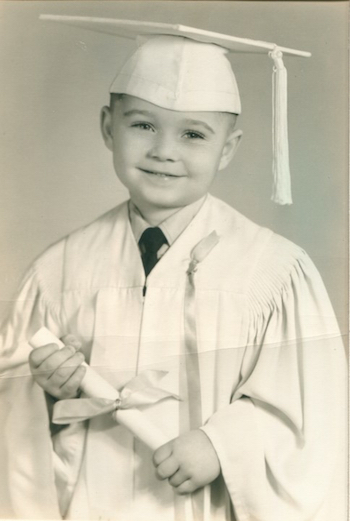Remembrance of a Reader
Join Our Community
Access this resource now. Get up to three resources every month for free.
Choose from thousands of articles, lessons, guides, videos, and printables.
 This story is about a student who did not like to read because it was difficult for him. He was never in my classroom, so I don’t know if his challenges stemmed from problems with comprehension, accuracy, fluency, or expanding vocabulary. I do know that it was hard for him to pay attention in class, and that he didn’t have much support at home or opportunities for enrichment.
This story is about a student who did not like to read because it was difficult for him. He was never in my classroom, so I don’t know if his challenges stemmed from problems with comprehension, accuracy, fluency, or expanding vocabulary. I do know that it was hard for him to pay attention in class, and that he didn’t have much support at home or opportunities for enrichment.
In elementary school, he attended programs designated for reluctant readers. Some teachers were kind to him and others weren’t so kind; some thought he was just a late bloomer, and others didn’t think he’d ever bloom at all. He knew he wasn’t a good reader, and his experiences helped him develop compassion and identify with others who struggled. As he got older, he worked hard to expand his vocabulary and improve his writing skills.
In later life, he composed work-related correspondence with the best of them and edited the work of others. He mentored people who worked for him—seeing the potential in everyone, rather than judging them. With his big heart, he wanted everyone to succeed, advance, and do better for themselves and their families. He felt confident that they could, if only they tried.
He married a bookish woman who loved to read and write, and he was inordinately proud of her. Even though he was not an avid reader, he never minded making a last-minute trek to the library to pick up or drop off books for her. One year he even plowed through a snowstorm to find books and videos about Casimir Pulaski Day, so that the holiday would be more meaningful for her students.
I don’t think he ever read a novel from cover to cover, although he enjoyed nonfiction, magazines, newspapers, and reading about topics such as logistics and the energy grid. With no formal training, he could assemble furniture, lay a wood floor, or install crown molding with grace and ease. No power tool was too daunting, and he never needed to look at operating manuals or instructions.
You may have already guessed that the reluctant reader was my husband and best friend. Our marriage ended far too soon when, on June 20, 2017, Joe died after fighting an aggressive esophageal cancer for six months. Not long before he died, Joe was asked what he would have done differently in his life. His answer had nothing to do with financial success or professional recognition. Instead, he said that he would have liked to pursue more education, but he never got that chance.
You will probably teach many students like Joe during the course of your career. I trust that you will do everything you can to help them learn to love reading and to have faith in themselves. Remember to look hard for their talents and do everything you can to nurture them. If they like to read about power tools, big rigs, or bridges, find books on those topics for them. Confer with them often and help them move ever closer to their goals. Encourage them to work in small groups with different readers who have a common need. They have so much to offer—and you never know how your work with them might end up having a positive influence on the lives of others through them.






